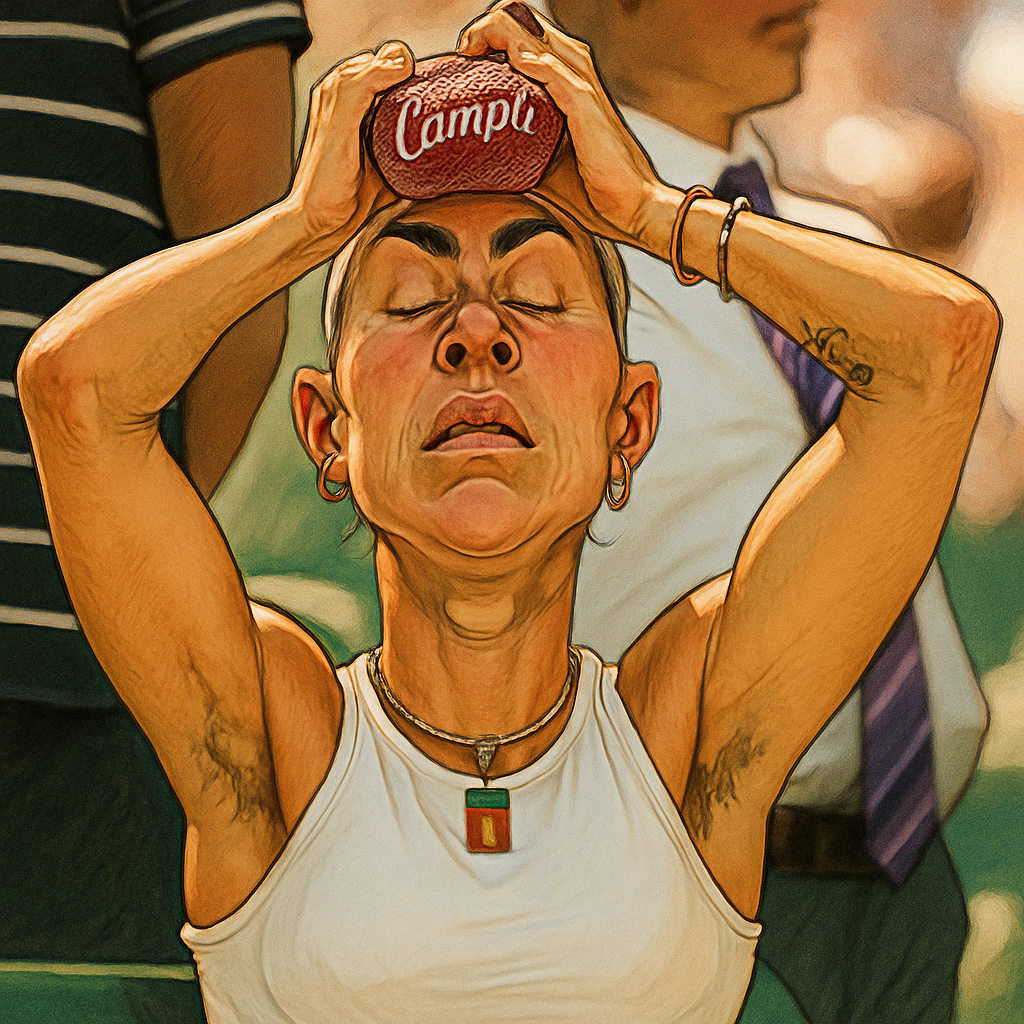LONDON — Aryna Sabalenka has long been known for her fiery on-court demeanor, but after a tough loss at Wimbledon, the Belarusian star revealed she had to consciously remind herself that smashing racquets was "not an option."
The world No. 3, who suffered a heartbreaking three-set defeat to Ons Jabeur in the quarterfinals, admitted in her post-match press conference that she struggled to control her emotions during the match. However, unlike previous Grand Slam exits—where frustration often boiled over—Sabalenka managed to keep her composure, a sign of her growing maturity.
A Shift in Mindset
Sabalenka, a two-time Australian Open champion, has historically been prone to emotional outbursts during matches. Racket smashes, screams of frustration, and visible agitation have been part of her game. But after her loss to Jabeur, she acknowledged a deliberate effort to change.
"I kept telling myself, 'No matter what happens, breaking a racquet is not an option,'" Sabalenka said. "I knew if I let my emotions take over, it would only make things worse. I had to stay calm."
This restraint was particularly evident in the third set, where Sabalenka fought back from a break down but ultimately fell short. Unlike previous matches where frustration might have derailed her completely, she maintained focus until the final point.
Learning from Past Mistakes
The last time Sabalenka faced a difficult Grand Slam loss—at the 2023 US Open—her post-match press conference was tense and defensive. Journalists noted her dismissive tone and reluctance to engage with questions about her performance.
This time, however, she was reflective. "I’ve learned a lot from those moments," she admitted. "I realized that how I handle losses is just as important as how I handle wins. It’s part of growing as a player and a person."
Key Changes in Sabalenka’s Approach:
- Focusing on breathing techniques between points
- Avoiding negative self-talk during matches
- Accepting mistakes rather than dwelling on them
Her coach, Anton Dubrov, has been instrumental in this shift. "We’ve worked a lot on mental resilience," Dubrov said in a recent interview. "Aryna has always had the game, but now she’s developing the mindset to match."
The Bigger Picture
Sabalenka’s improved emotional control hasn’t gone unnoticed. Tennis analysts and fellow players have praised her progress. Jabeur, her Wimbledon conqueror, remarked, "Aryna played with so much heart today. She’s always tough, but you can see she’s managing her emotions better now."
Despite the loss, Sabalenka remains optimistic about her season. She is still in contention for the year-end No. 1 ranking and has her sights set on the US Open. "Every match is a lesson," she said. "I’ll take this, learn from it, and come back stronger."
Conclusion
Sabalenka’s evolution from a volatile competitor to a more composed athlete is a testament to her dedication. While her power game remains her trademark, her ability to stay mentally disciplined could be the key to unlocking even greater success.
"I’m not perfect," she admitted with a smile. "But I’m working on it. And that’s what matters."

